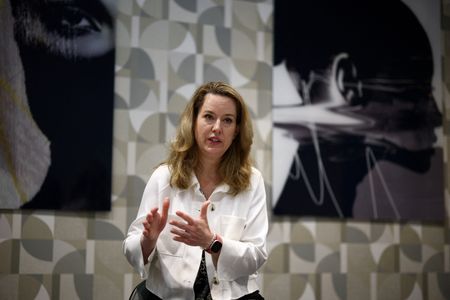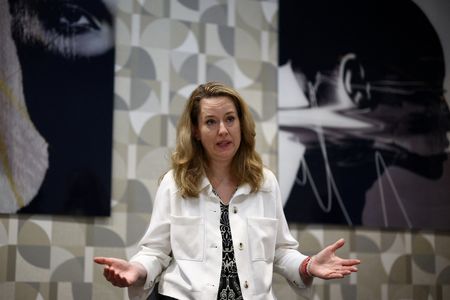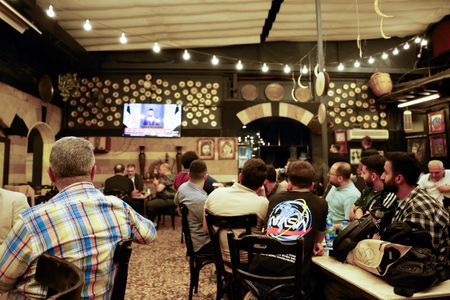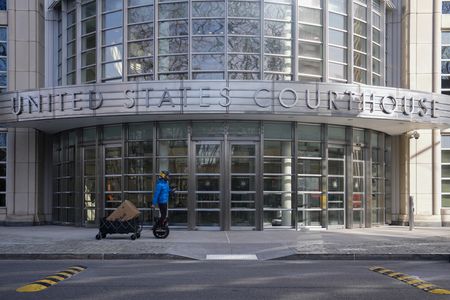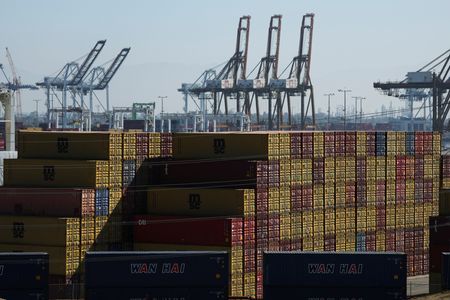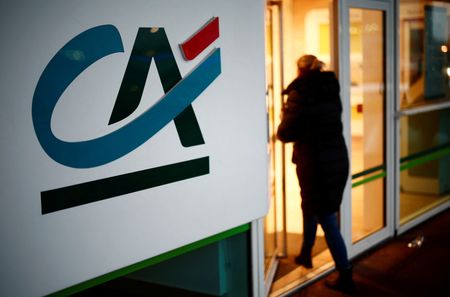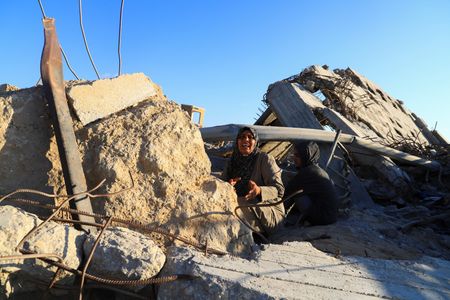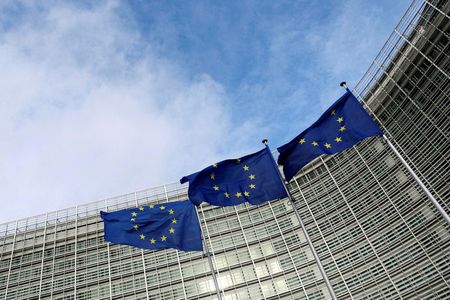By Alvise Armellini
ROME (Reuters) -Fatigue over the war in Ukraine and U.S.-led foreign aid cuts are jeopardising efforts to support people fleeing hardship, the head of the U.N. migration agency warned in an interview on Friday.
International Organization for Migration (IOM) Director General Amy Pope was speaking a day after a Ukraine recovery conference in Rome mobilised over 10 billion euros ($11.69 billion) for the country.
“It’s three-and-a-half years into the conflict. I think it’s fair to say that everybody is tired, and we hear that even from Ukrainians who’ve been experiencing the ongoing attacks in their cities and often have been displaced multiple times,” she told Reuters.
“The response to it, though, has to be peace, because ultimately, without peace, there won’t be an end, not only to the funding request, but also to the support for the Ukrainian people.”
Russia’s invasion has triggered Europe’s biggest refugee this century, with 5.6 million Ukrainian refugees globally and 3.8 million uprooted in their country, according to U.N. data.
The IOM and other U.N. agencies are hampered by major funding shortages as U.S. President Donald Trump slashes foreign aid and European donors like Britain shift funds from development to defence.
U.S. decisions will give the IOM a $1 billion shortfall this year, Pope said, saying budget reductions should be phased gradually or else Trump and others risk stoking even worse migration crises.
“It doesn’t work to have provided assistance and then just walk away and leave nothing. And what we see happening when support falls is that people move again … So (the cuts) can ultimately have a backlash,” she said.
WARNING FOR U.S., PRAISE FOR ITALY
Pope, 51, is the first woman to lead the IOM and a former adviser to the Obama and Biden administrations who is now working with Trump’s White House on so-called “self-deportations”.
She said the IOM has decades of experience of such programmes in Europe and they take time to implement, especially to prepare returnees and check they are going voluntarily.
“That doesn’t always move as quickly as governments would like,” Pope said.
Asked whether the IOM would stop working with the U.S. if the returns turned out to be forced, she said: “We’ve made clear to them what our standards are, and as with every member state, we outline what we can do and what we can’t do, and they understand that, and it is part of the deal.”
After Rome, Pope was on her way to Washington to meet with Trump administration officials and U.S. lawmakers.
Turning to Europe, she praised Italy’s decision to increase migrant work permits to nearly 500,000 for 2026-2028, coming from a right-wing government otherwise pursuing tough border policies.
“What Italy is doing is taking a realistic look at what labour they need, what skills they need, what talent they need. And then they’re designing a system to allow people to come in through a safe and legal channel,” Pope said.
($1 = 0.8557 euros)
(Additional reporting by Emma Farge and Amina Ismail, editing by Andrew Cawthorne)

